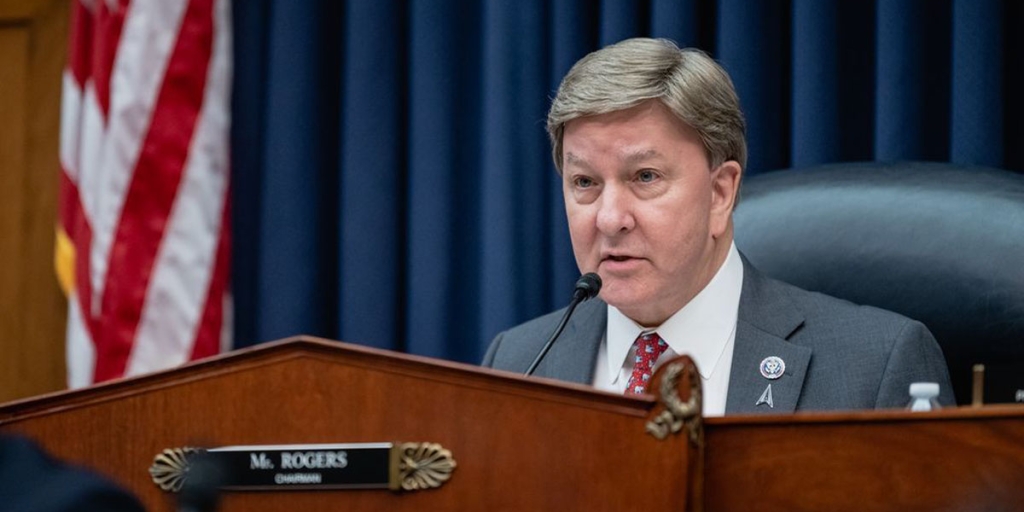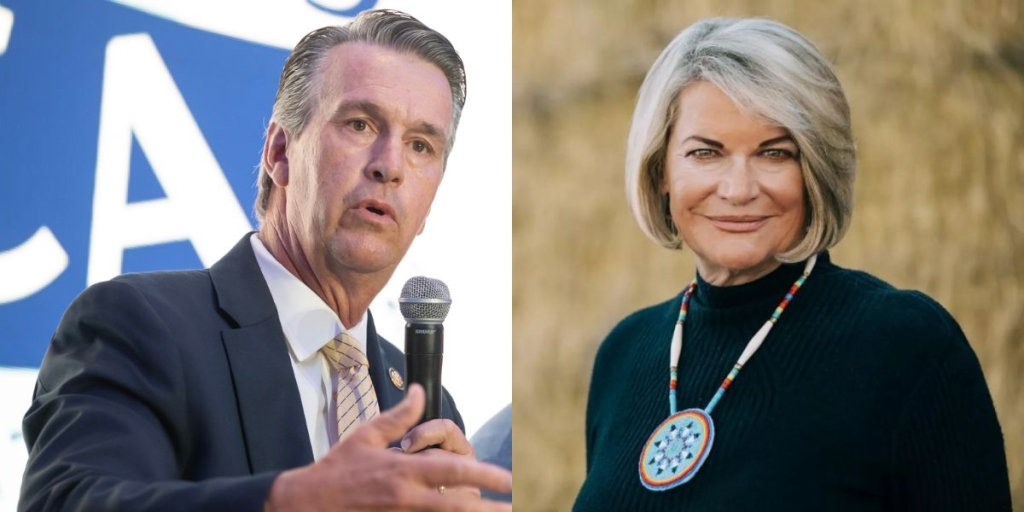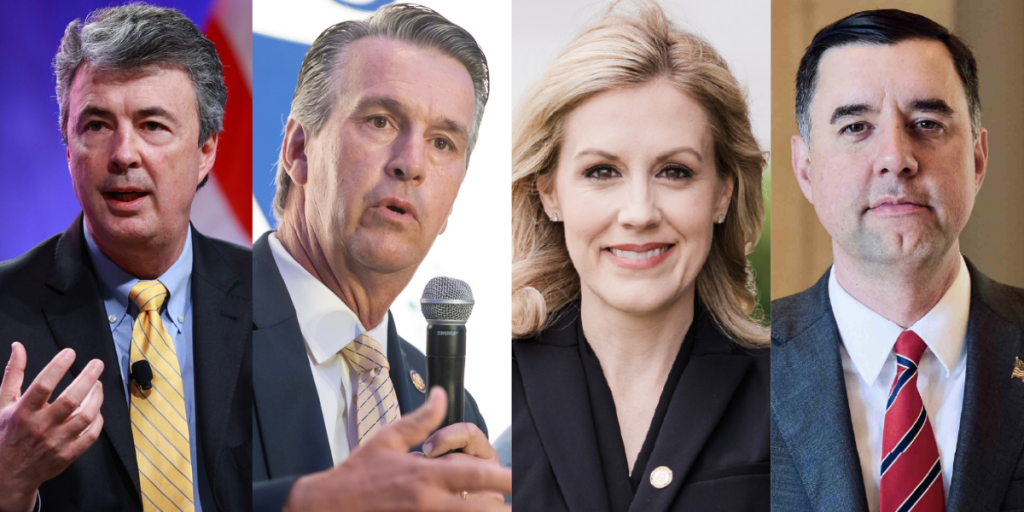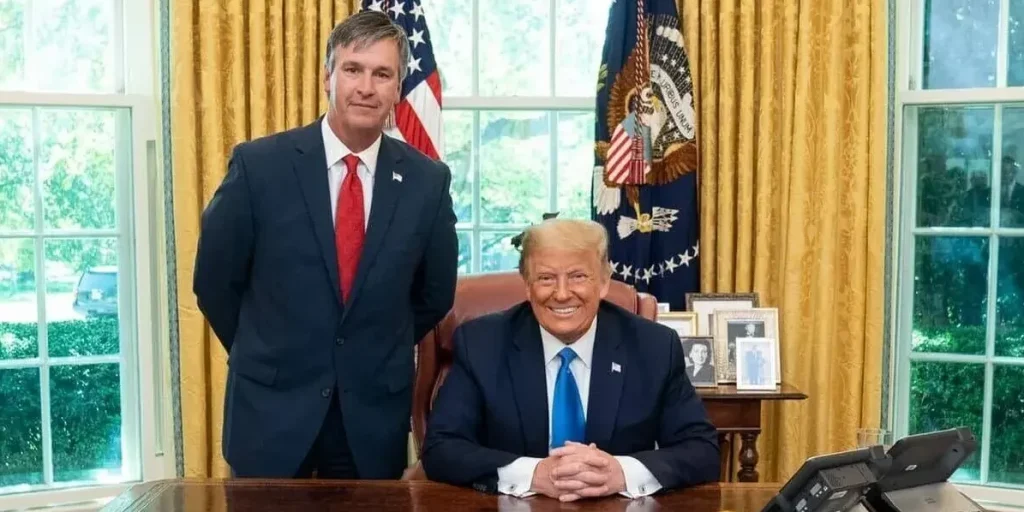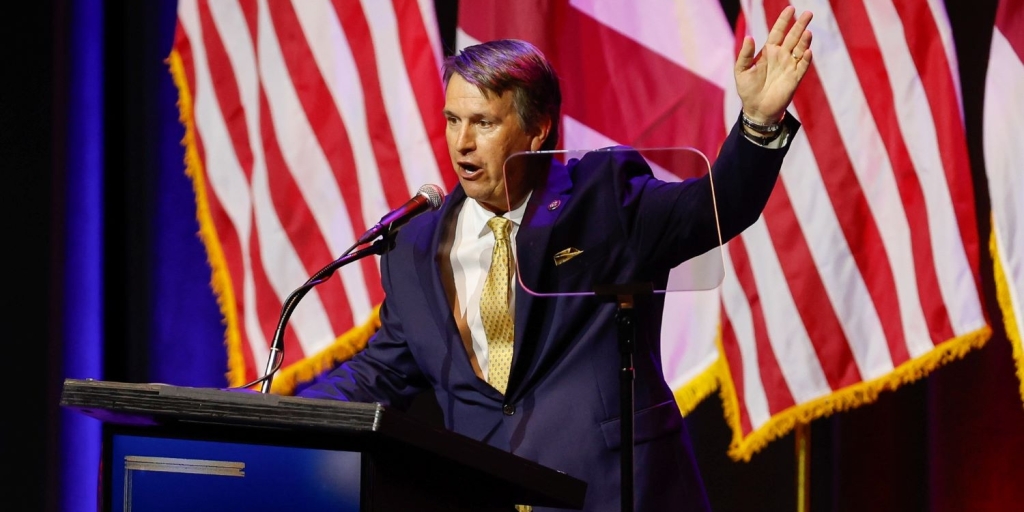“If Pipkin and Tullos are going home to their families tonight after what they did,” the juror said, “then Barry Moore should definitely be going home to his family.”
OPELIKA, Ala. — Rep. Barry Moore (R-Enterprise) was able to breath a sigh of relief Thursday as a twelve-member jury of his peers found him not guilty on two counts of first-degree perjury and two counts of providing false statements during testimony he gave to a special grand jury earlier this year.
While testifying before the grand jury in January, Moore was asked to recall the details of a conversation he had with his soon-to-be primary opponent Josh Pipkin approximately seven months before. Unbeknownst to Moore, Pipkin had recorded the conversation, and prosecutors felt he was not sufficiently accurate in his recollection of the call during his testimony.
Moore’s legal team maintained throughout the trial that the statements made during his testimony were materially true and that any discrepancies were the result of Moore having not remembered the details of a conversation that had taken place over a half-year prior.
The jury ultimately agreed with the defense and found Moore not guilty on all counts.
“We’re just relieved and glad it’s over for our family,” he said.
But leading up to the moment when the jury decided his fate, there were plenty of tense moments.
It was a case that was heavily dependent on the testimony of two key witnesses, Pipkin and Jonathan Tullos, both of whom had secretly recorded phone conversations they had with Moore.
Pipkin is an Enterprise city attorney who unsuccessfully ran against Moore in this year’s Republican primary. Tullos is the executive director of the Wiregrass Economic Development Corporation and a close personal friend of Pipkin’s.
During the trial, the jury heard the recordings Pipkin and Tullos had made of Moore in June of 2013. During the conversations, both men alleged that Alabama House Speaker Mike Hubbard would stall an economic development project unless Pipkin did not run against Moore for his State House seat. Moore conceded during the conversations that Hubbard was “furious” about Pipkin potentially running against him, but never said that Hubbard would indeed stop the project. Moore contended during the trial that the two men were attempting to trick him into implicating Hubbard in that way, and text messages between Pipkin and Tullos did indicate that they had worked in coordination with each other.
And the poorly received testimony of the two men during the trial proved to be the downfall of the prosecution’s case once the jury went into deliberations.
Yellowhammer spoke to a source who interviewed several jurors after the trial and gave some interesting insight into what brought them to their decision after lengthy deliberations that took place over a two-day span.
According to the source, who spoke freely on condition of anonymity, the jury elected a foreman and immediately voted 10-2 to acquit Moore on all counts. The two holdouts were a gentleman and a lady who had differing concerns.
The gentleman needed legal clarification on the terms “knowingly and willfully.” In order to convict someone of perjury, it has to be proven beyond a reasonable doubt that they purposefully lied under oath, knowing full well that the statements they were giving were untrue.
At that point, the jury requested clarification from the judge, which he provided. With the law now clarified, the gentleman changed his vote to not guilty, leaving the lady as the only holdout.
She seemed to be dug in and the jury rehashed aspects of the case at length working to win her over. Finally, it was a simple statement by another gentleman on the jury that broke the stalemate.
“If Pipkin and Tullos are going home to their families tonight after what they did,” the man said, “then Barry Moore should definitely be going home to his family.”
The lady agreed, and changed her vote to not guilty on all counts, giving the jury the unanimity it needed to deliver a verdict on case.
Moore was asked after the verdict if he agreed with the jury’s assessment of what Pipkin and Tullos had done.
“I think the evidence shows that they had planned to record me and extort me,” Moore told the press. “Time and time again I think that’s what the evidence indicated. I’m grateful that the jury understood what was going on.”
Moore’s legal issues are now behind him, but questions were brought up during the trial about the fact that Pipkin had recorded him while Moore was in Florida. That’s important because, although conversations can be recorded in Alabama as long as only one person on the call knows, in Florida, the consent of both parties is required. It is unclear at this point if legal action will be pursued against Pipkin in that regard.
Follow Cliff on Twitter @Cliff_Sims





